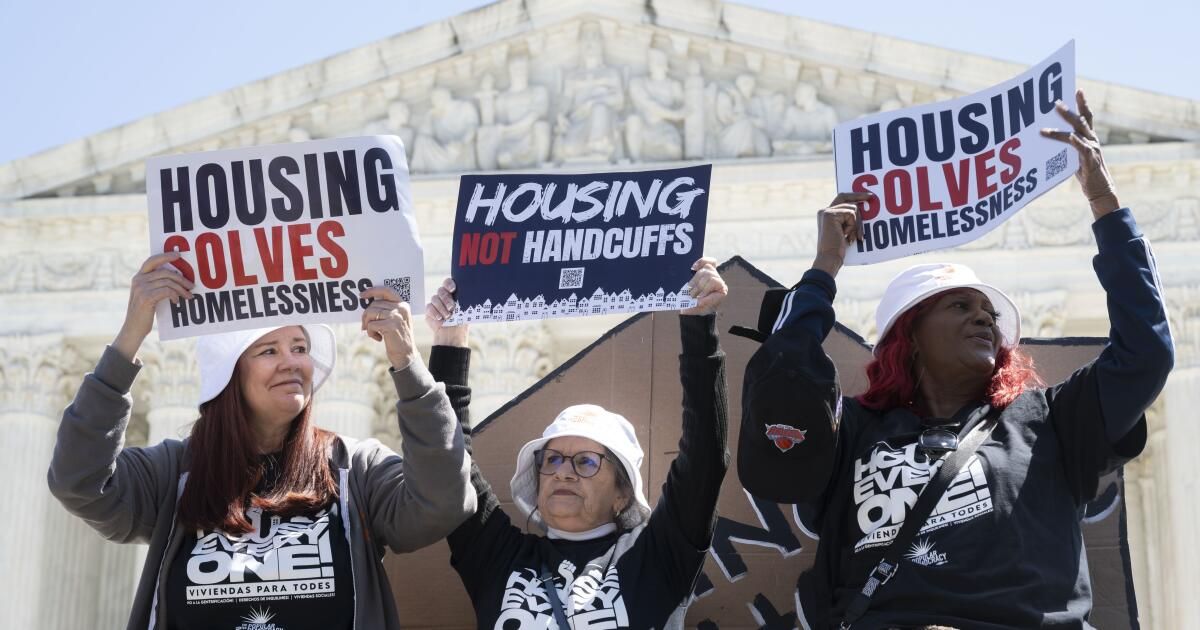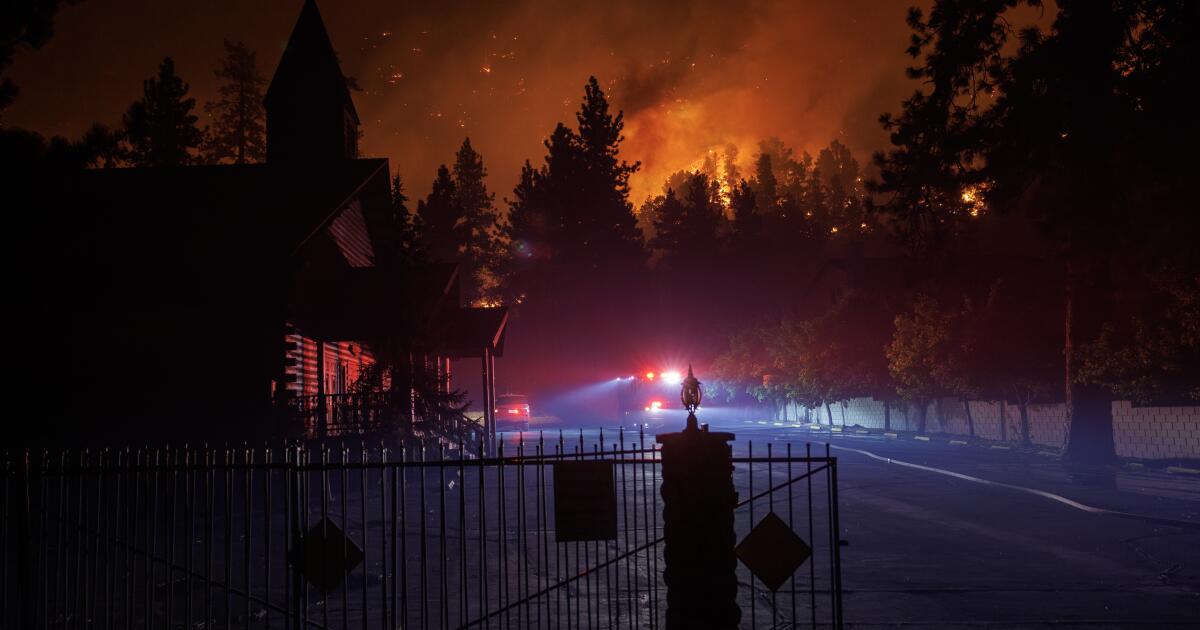Just hours after the Supreme Court issued its ruling in Grants Pass v. Johnson last week, allowing cities and counties to criminalize homelessness, Los Angeles City Councilmember Traci Park co-authored a motion calling on city officials to examine existing anti-camping restrictions in Los Angeles and the county’s 87 other cities.
It’s fine to review city laws, but Park revealed the intent behind the hasty request on her council’s website: “If we allow people to camp wherever they want, for as long as they want, regardless of whether they’ve been offered services or a place to go, we’re likely to see other cities, other regions, and other states moving their homeless problems directly to Los Angeles.”
Using that information as a template for stepping up enforcement, as Park appears to want, would lead the city down the wrong path. The consequences of this terrible ruling cannot be a race to the bottom in which each city implements stricter anti-camping laws in a battle to prevent one jurisdiction from pushing its homeless residents into another.
The ruling in Grants Pass v. Johnson allows police to fine and jail homeless people who live and sleep outdoors, even when there is no shelter available for them. But no one should view the outcome of the case as a signal to pass new anti-camping laws or step up enforcement of existing ones. Fining or jailing people who sleep on sidewalks when they have nowhere else to go or kicking them off the street does not solve the homeless problem. Only the availability of affordable housing and supportive services can end the crisis.
That message is not just for Los Angeles City Council members, but for all other elected officials in the county.
Los Angeles officials have already banned camping in hundreds of locations across the city. All schools and daycares, for example, are considered no-camping spots. And some council members have added additional spots. In many cases, when a sidewalk is cleared, people are first offered shelter. If they refuse and are still there when the anti-camping designation is enforced, they can be fined and banned from those spots. We don’t want the city to become a complete no-camping zone.
Fortunately, Mayor Karen Bass, who denounced the Grants Pass decision, has taken the position that we cannot arrest our way out of the homeless crisis. She has pledged to increase temporary housing and accelerate the construction of affordable housing in Los Angeles, which is desperately lacking.
Increased availability of city-funded permanent housing for homeless people and housing vouchers has paid off in the city’s first drop in the homeless population since 2018. The number of homeless people in the city is down 2.2% from 2023, according to the January 2024 count. Bass’s Inside Safe program, which temporarily houses people in motels and hotels, along with an increase in shelter beds, contributed to a 10.4% drop in unsheltered homelessness and a dramatic 17.7% increase in the sheltered population.
But the city of Los Angeles cannot be the only bastion of rational ideas in Los Angeles County when it comes to housing for people who are homeless. The county’s 87 other cities should not view the Grants Pass decision as an opportunity to pass sweeping new laws to outlaw homelessness and push people into neighboring communities, as they have been known to do. Burbank police officers were recently caught on security camera video dropping off a homeless man in North Hollywood, in front of Los Angeles Council President Paul Krekorian’s district office.
Nor should elected officials in Los Angeles pass new anti-camping laws as a protection against other cities passing new laws.
What they should do is focus on building more housing for their own homeless residents and work with the county to coordinate homeless services and housing. Los Angeles County Supervisor Lindsey Horvath, who chairs the Los Angeles Homeless Services Authority Commission, believes the Board of Supervisors can help.
He said he wants to meet with city officials, as he has in the past, and let them know how to access county services for their homeless populations and discuss ways they can increase housing availability. “When people are frustrated, they look for these short-term actions to address the problem,” he said of enforcement. Horvath, who called the Supreme Court’s decision “unconscionable,” and the other L.A. supervisors should convene city officials to strategize policies that work and emphasize that enforcement is not one of them.
Homelessness is not a crime. For most, it is the result of a lack of affordable housing so severe that thousands of people simply cannot afford it. No Being homeless. If cities really want to solve the homeless problem, it is imperative that they make way for more housing for the homeless, not simply push them to another sidewalk or another city.












